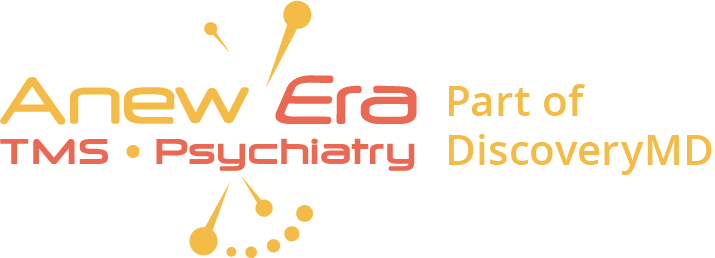Why Choose TMS Therapy Over Medication? Exploring the Advantages of Non-Medicinal Treatments
Depression is a complex mental health condition that affects millions of people worldwide. Traditionally, antidepressant medications have been the primary treatment for depression. However, in recent years, there has been growing interest in alternative approaches, particularly transcranial magnetic stimulation (TMS). TMS is a non-medicinal treatment that offers a promising option for those seeking effective relief from depression. In this blog, we will delve into the advantages of TMS over medication, highlighting the benefits and discussing how it compares to traditional antidepressant therapies. We will also explore TMS’s role in treating other mental health conditions such as obsessive-compulsive disorder (OCD) and its FDA approval status.
The Efficacy of TMS Treatment for Depression
TMS therapy is gaining recognition as a highly effective treatment for depression, particularly for individuals who have not responded well to traditional antidepressant medications or are unable to tolerate their side effects. Unlike medications that work by altering chemical balance in the brain, TMS utilizes magnetic pulses to stimulate specific regions of the brain responsible for regulating mood. This non-invasive approach targets the root cause of depression without inducing the emotional blunting often associated with antidepressant medications. Moreover, TMS has shown significant success in treating treatment-resistant depression, providing hope for those who have struggled to find relief with conventional therapies.
Comparing TMS Therapy to Antidepressant Medication
One significant advantage of TMS therapy over medication is the absence of systemic side effects. Antidepressant medications can lead to adverse reactions, such as high blood pressure, weight gain, and even symptoms of serotonin syndrome if the dose is too high. In contrast, TMS does not introduce chemicals into the body, reducing the risk of such side effects. Additionally, some individuals may experience common signs that their antidepressant dose is not right, such as mood swings or fluctuations in energy levels. With TMS therapy, treatment protocols are personalized to the individual, offering a more tailored and precise approach to treating depressive symptoms.
TMS and Obsessive-Compulsive Disorder (OCD)
While TMS is primarily recognized for its effectiveness in treating depression, its potential benefits extend beyond mood disorders. Research has indicated that TMS therapy can be beneficial for individuals with obsessive-compulsive disorder (OCD). OCD is a condition characterized by intrusive thoughts and repetitive behaviors that can significantly impact an individual’s quality of life. Accelerated TMS therapy, which involves more sessions per day, has shown promise in targeting the specific brain regions associated with OCD. The FDA approval for TMS treatment is limited to depression, but ongoing research continues to explore its potential in treating other mental health conditions.
Safety and Non-Invasiveness of TMS
TMS is a safe and well-tolerated treatment, with relatively few reported adverse effects. While some individuals may experience mild headaches or discomfort during or after a session, these side effects are generally short-lived and mild. Unlike medications that may interact with other drugs, TMS does not require changes to a person’s current medication regimen, making it a suitable option for individuals with complex health conditions. The non-invasive nature of TMS also means that patients can return to their regular activities immediately after each session without any downtime.
Using TMS Therapy in Conjunction with Traditional Mediation
Transcranial Magnetic Stimulation (TMS) therapy can be used in conjunction with traditional medication as a complementary treatment approach for individuals with depression. When used alongside traditional medication, TMS therapy can enhance the overall effectiveness of the treatment. It may be particularly beneficial for individuals who have not responded adequately to medication alone or who experience intolerable side effects. However, it is important to consult with a healthcare professional to determine the most appropriate treatment plan, as the combination of TMS therapy and medication should be tailored to each individual’s specific needs and circumstances.
Embracing the Future of Depression Treatment
As we continue to explore alternative treatments for depression, TMS stands out as a promising and innovative approach. Its effectiveness in treating depressive symptoms, including treatment-resistant depression, sets it apart from traditional antidepressant medications. With its non-invasive nature, personalized treatment protocols, and minimal side effects, TMS offers a ray of hope for those seeking relief from depression without relying solely on medication. However, it is essential to consult with a qualified healthcare professional, like those at Anew Era TMS, to determine the best treatment plan for individual needs. As research and technology continue to advance, TMS may become an increasingly common and transformative solution in the treatment of depression and other mental health conditions.
Choosing the right treatment for depression is crucial, and for many individuals, TMS offers an effective and non-medicinal alternative. With its FDA approval for depression, personalized treatment protocols, and success in treating treatment-resistant depression, TMS has emerged as a promising option for those seeking relief from depressive symptoms. Additionally, its potential benefits in treating other conditions such as OCD further highlight the versatility and potential of this innovative therapy. As we look to the future, TMS is poised to play a significant role in revolutionizing the way we approach mental health treatment, providing hope and a new lease on life for many individuals battling depression.





